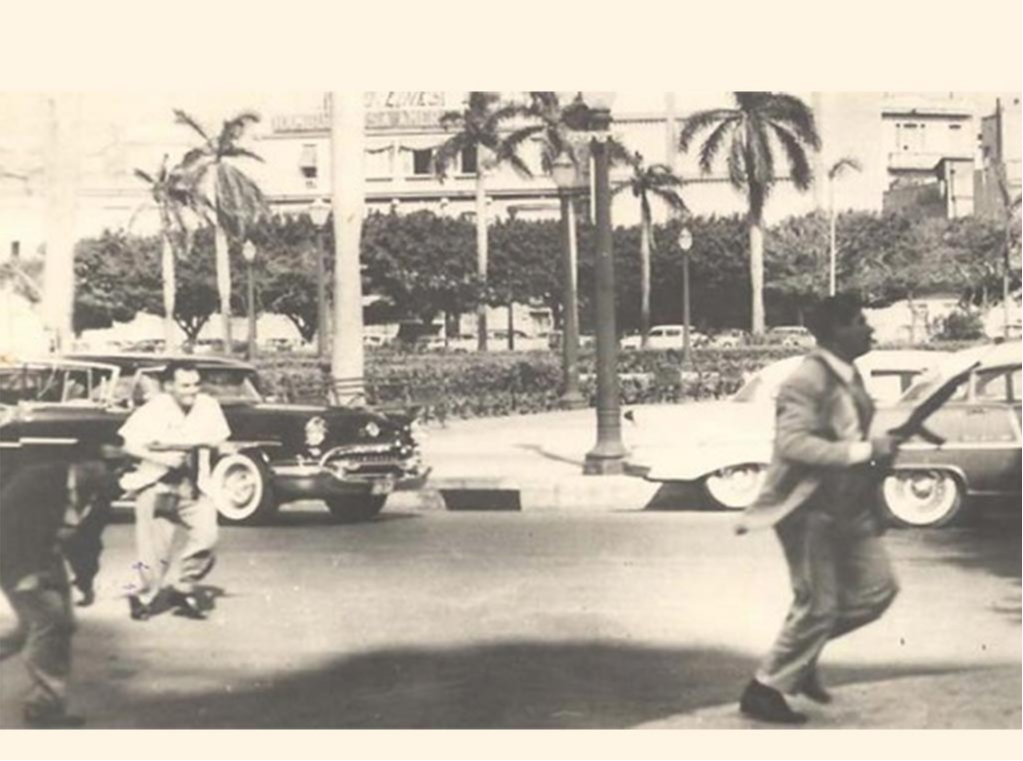Cuba today commemorates the 67th anniversary of the assault on the Presidential Palace, considered one of the most important events in national history, carried out by young members of the then Revolutionary Directorate, led by José Antonio Echeverría.
The purpose of the young assailants that March 13, 1957 was to disconcert the regime with the execution of dictator Fulgencio Batista, to exhort the people to fight through Radio Reloj radio station and to take other points of the city such as the Police Master Barracks -occupying its arsenal- and so on, other police stations and barracks until they dominated the capital.
“Assaulting the Presidential Palace of Cuba was a duty to the Homeland”, said the survivor of the action Manuel Gómez Sartorio to Prensa Latina in 2023, on the 66th anniversary of the event.
Referring to the preparations prior to the assault, Gómez Sartorio said: “We were about 50 men, before the 13th we were quartered in two apartments in a building in the capital’s El Vedado neighborhood, that’s where the details of the action were finalized,” the fighter told Prensa Latina.
He commented that the trip to the Palace was made in two cars and a truck marked with a sign that said Fast Delivery on the side. When we arrived, the car stopped at the side of the building and that’s when things got complicated, because there was a Route 14 bus circulating in the area where we had to park,” he said.
“We had to get off the truck in those conditions and begin the confrontation with the Batista forces. With me was Mario Casañas, whom I had known since I was very young. After entering the building and confronting the enemy, Mario was wounded by a burst, I prevented him from falling to the ground. He died in my arms,’ he recalled.
The fighting inside the Palace was violent; many young men died and others ran out of ammunition. It was decided to retreat, to call for reinforcements and then continue the attack, but the support operation did not work.
Simultaneously, another group led by student leader José Antonio Echeverría took over Radio Reloj to urge the people to fight.
It is still impressive to listen to the recording of Echeverría’s words when he announced the supposed execution of the tyrant from the radio booth: “People of Cuba! At this moment the dictator Fulgencio Batista has just been revolutionarily executed.
“In his own burrow of the Presidential Palace, the people of Cuba have gone to settle accounts with him…”, the speech continued.
The 24-year-old revolutionary later fell in a confrontation with a police patrol, while he was on his way to the University of Havana to continue with the action plan.
In a solemn act, held at the Karl Marx Theater on March 13, 2002, the historic leader of the Cuban Revolution, Fidel Castro, said: “They bequeathed us the example with which our people, day by day, piece by piece and idea after idea, have turned Cuba from a Spanish colony first and a humiliating imperialist domination later, into the most independent and free nation on Earth (…) into the most supportive and fair country the world has ever known”.


